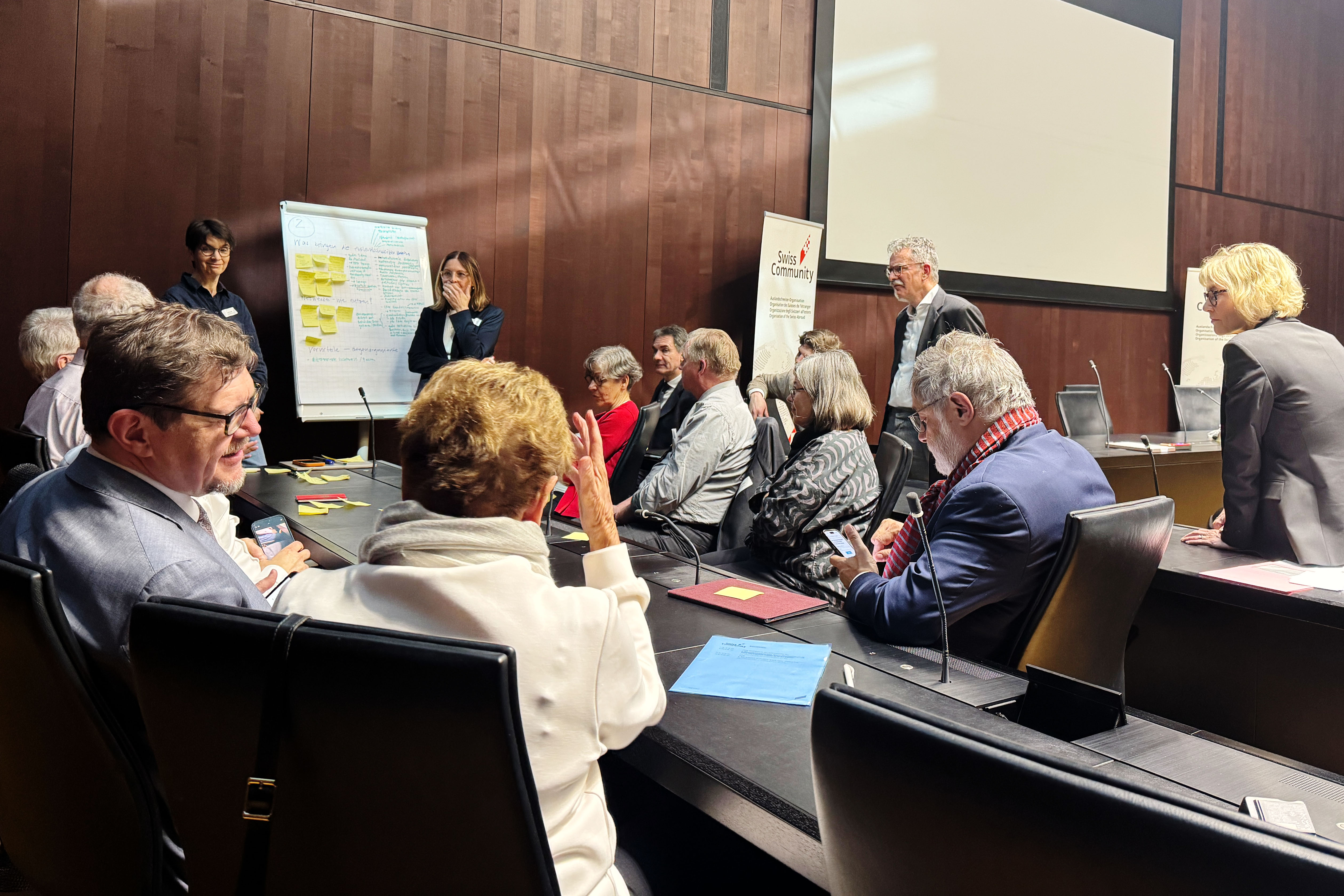
New OSA director: ‘I see myself as a bridge-builder’

Lukas Weber was named as the new director of the Organisation of the Swiss Abroad (OSA) last week. In his first media interview, he talks to SWI swissinfo.ch about the challenges ahead and how he intends to reconcile his personal convictions with his new position.
The Council of the Swiss Abroad, OSA’s “parliament”, met in Bern on March 21. The day before, just under sixty delegates from all over the world took part in a workshop at the Federal Palace on the untapped potential of the diaspora. Weber, 58, was also present.
OSA’s board voted unanimously for Weber at the end of a selection process that involved around 120 applications, OSA wrote in a press releaseExternal link on March 19. He will take over as director of OSA from Ariane Rustichelli in mid-April.
SWI swissinfo.ch: What made you want to apply for the OSA director position?
Lukas Weber: The position of director of OSA brings together many of the aspects that fascinate me about the job, such as developing a culture and providing a vision. The wide range of tasks and the manageable size of the team convinced me of the value of the job. I like the idea of being able to work for an organisation that brings Swiss people together and seeks to find common denominators.
SWI: What is your vision for OSA?
L.W.: It’s still too early to say. For the moment, I’m soaking up the atmosphere, reading a lot and meeting lots of people. In the coming months, I’d like to think about how to take OSA forward.
SWI: What challenges do you see the organisation facing in the future?
L.W.: Bringing together the Swiss Abroad and defending their interests is a task that is still relevant today. I think OSA can support them by raising its profile on social networks and using new technologies to respond more effectively to their needs.

More
Lukas Weber named as director of the Organisation of the Swiss Abroad
SWI: Do you have any experience of or links with the Swiss community abroad?
L.W.: I lived in California for a year during my studies in the field of energy. I was touched by American patriotism. I experienced it up close, because my first day at work happened to be September 11, 2001. I saw how Americans came together and found common ground.
SWI: How did you experience life living abroad?
L.W.: Being away has given me a different perspective on my country and Europe. At the time, I thought that European countries were very different from one another. But when I spoke to other European expats in the United States, I realised that we had a lot in common.
In the United States, the social network is less dense and people are more open. There is less social control than in Switzerland. To realise that you need some distance.
SWI: In 2017, you launched a referendum against the Swiss government’s energy bill. You are also chair of the Christians and Energy Working Group. How do you intend to combine your new role with your strong Christian and political values?
L.W.: During the referendum, I managed to rally several political parties to our cause. To do that, I had to leave my political partisan side where it belonged in order to work in harmony. I intend to do the same at OSA.
I was brought up in a left-wing environment and became a conservative liberal out of conviction. My studies in political philosophy and my bilingualism allow me to stand back and understand other cultures. I see myself as a bridge-builder.

More
The Swiss Abroad need a strong voice and targeted information
SWI: What network do you have at your disposal to defend the interests of the Swiss Abroad?
L.W.: I still need to develop my network and get to know the members of the parliamentary intergroup better. I’m also taking advantage of the Council of the Swiss Abroad, which took place very recently, to make contacts.
What’s more, I used to work in the parliamentary services. So I know the rules and I don’t find it difficult to approach parliamentarians. That makes networking easier.
I’m also convinced that human relations and trust are the basis of high-quality work that delivers good results.

More
Can the Swiss Abroad salvage their image?
SWI: What will your priorities be?
L.W.: When I take office, I will always ask myself the question ‘what would we be doing if the organisation were founded today?’ This method enables us to think beyond traditions and abandon those that are no longer effective in achieving the objectives the organisation has set itself. And it’s always easier to do this at the beginning before you get caught up in the system.
I hope that I will be able to maintain this spirit, so that we can develop a common vision and guide OSA’s driving forces in this direction.
What is your opinion? Join the debate:
Adapted from French by Simon Bradley/ac

In compliance with the JTI standards
More: SWI swissinfo.ch certified by the Journalism Trust Initiative




























You can find an overview of ongoing debates with our journalists here . Please join us!
If you want to start a conversation about a topic raised in this article or want to report factual errors, email us at english@swissinfo.ch.